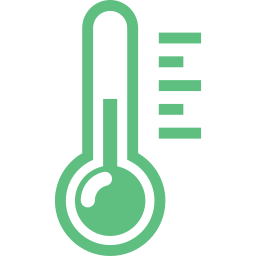One of the most frustrating trouble that can appear on a Volkswagen Beetle is to watch its temperature gauge increasing. Actually, a gauge that rises above 90/100° is in most cases a sign that your Volkswagen Beetle is heating up. If you are in this case, you made the good choice to visit this link because we will help you to identify the source and understand the induce. To do this, first of all, we will look at the explanations for engine overheating and the risks you run, and secondly, what possibilities are available to you to stop this phenomenon.

Why is my Volkswagen Beetle overheating? What are the risks?
A Volkswagen Beetle that heats up is an indication of a major problem. You should not think that you will manage it later because, if you do, you risk irreversibly harming the engine of your car. In reality, if your Volkswagen Beetle heats up, and you keep driving, you simply risk the breakage of your car engine. An internal combustion engine works through combustion, which causes heat. This heat must be controlled because it can damage the engine parts. If you see white smoke starting to come out of your engine and you undergo a loss of power, your Volkswagen Beetle is heating up and you are harming your engine, you must stop.
What are the causes of an heating up Volkswagen Beetle ?
- A leak in the cooling system
If you frequently run out of coolant and refill your system on a regular basis, you could have a leak, so have your system checked out for leaks. It is also plausible that it is your cylinder head gasket that is faulty, in which particular case you should see “mayonnaise” in the area of your engine oil cap. - A dead calorstat
The task of this component is to switch on the engine cooling only when the engine is at optimum temperature, if it is ruined, the coolant will never reach the engine and your Volkswagen Beetle will heat up. Check its state. - A blocked radiator
Even though this circumstance is not so common, if your radiator is very dirty, or clogged with impurities, its cooling fins will no longer perform their work and on hot days your Volkswagen Beetle might overheat. - A fan that no longer functions
Be sure you examine the state and performance of your fan, in addition to the air produced by the speed of your Volkswagen Beetle, it has an important role in cooling your engine when it has to be the relay when you drive slower. In the eventuality of a breakdown and travelling at low speed, your car will inevitably heat up. - A damaged water pump
Finally, it is plausible that your water pump is at the end of its life. In reality, its job is to rotate the coolant throughout the circuit, in the case of problem this process stops and your Volkswagen Beetle heats up. This might be due to a defective belt that has ruined your pump. If this is your case, go to your garage.
How can I solve the problem of an heating up Volkswagen Beetle?
Furthermore to having checked out all the parts that may be causing your Volkswagen Beetle to heat up, you will have to make the right decisions to limit the risks in case your car gets hot and you have no other solution than to go home, or to go to your auto technician.
Here are a few tips if your car is overheating:
- Lower your engine speed but not your speed:
Reducing your engine speed will allow you to limit the heat released by the engine. In contrast, try to stay in 5th gear at 70/80 km/h in order to have a large natural airflow to limit the heating of your Volkswagen Beetle. - Stop the engine of your Volkswagen Beetle if you go over 100°:
Don’t be in a rush, in a case of overheating, it is better to take breaks and let the engine cool down rather than pushing it and risking breakage. - Turn on your heater:
Turning on the heater will allow you to gets rid of some of the heat from the engine block, it is an effective remedy. And conversely, turn off your air conditioner which creates heat.
To get more tips on the Volkswagen Beetle, take a look at the Volkswagen Beetle category.

